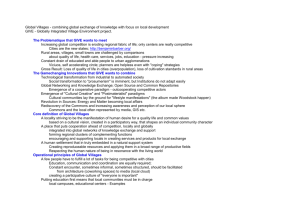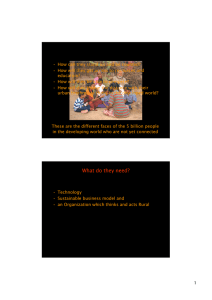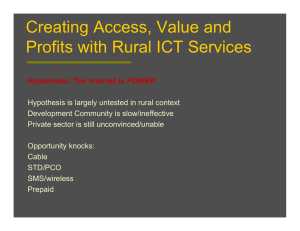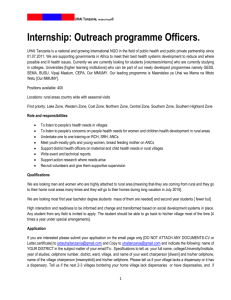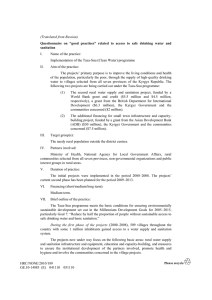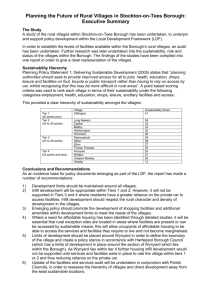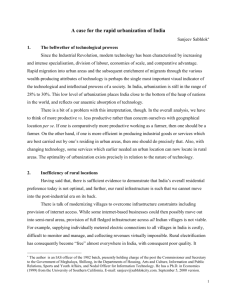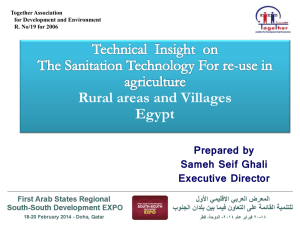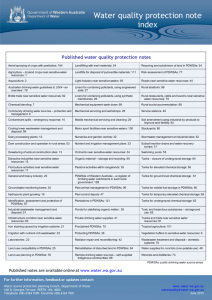Byrraju Foundation is Initiatives and Experiences in Rural Villages
advertisement
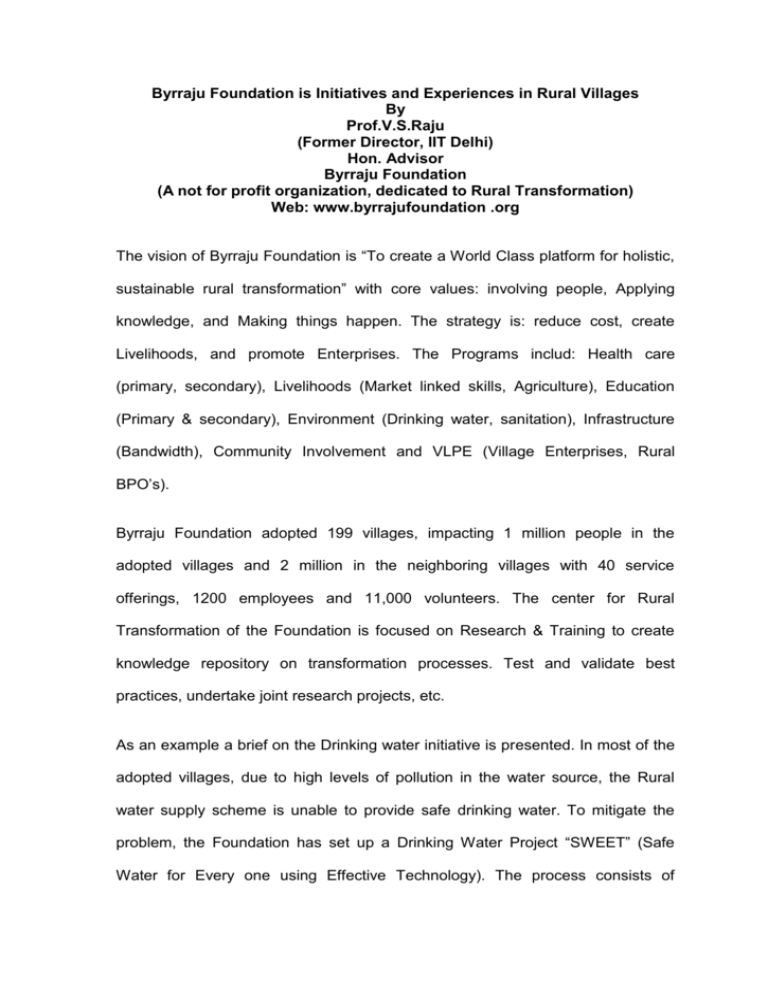
Byrraju Foundation is Initiatives and Experiences in Rural Villages By Prof.V.S.Raju (Former Director, IIT Delhi) Hon. Advisor Byrraju Foundation (A not for profit organization, dedicated to Rural Transformation) Web: www.byrrajufoundation .org The vision of Byrraju Foundation is “To create a World Class platform for holistic, sustainable rural transformation” with core values: involving people, Applying knowledge, and Making things happen. The strategy is: reduce cost, create Livelihoods, and promote Enterprises. The Programs includ: Health care (primary, secondary), Livelihoods (Market linked skills, Agriculture), Education (Primary & secondary), Environment (Drinking water, sanitation), Infrastructure (Bandwidth), Community Involvement and VLPE (Village Enterprises, Rural BPO’s). Byrraju Foundation adopted 199 villages, impacting 1 million people in the adopted villages and 2 million in the neighboring villages with 40 service offerings, 1200 employees and 11,000 volunteers. The center for Rural Transformation of the Foundation is focused on Research & Training to create knowledge repository on transformation processes. Test and validate best practices, undertake joint research projects, etc. As an example a brief on the Drinking water initiative is presented. In most of the adopted villages, due to high levels of pollution in the water source, the Rural water supply scheme is unable to provide safe drinking water. To mitigate the problem, the Foundation has set up a Drinking Water Project “SWEET” (Safe Water for Every one using Effective Technology). The process consists of coagulation, chlorine dosing, pressure sand filter, activated carbon filter, micron filters, UV radiation and Ozonation. The water is supplied in 12 liter food grade polyethylene cans at Rs1.50 per can at the plant (Rs.12.50 paisa per liter). The capital cost of building and plant is shared between the Community (2/3 rds) and Foundation (1/3rd). The Panchayat provides land for the building and the raw water. As on date there are 61 plants providing access to safe drinking water for 1 million people. The model has been replicated in 20 other villages.
